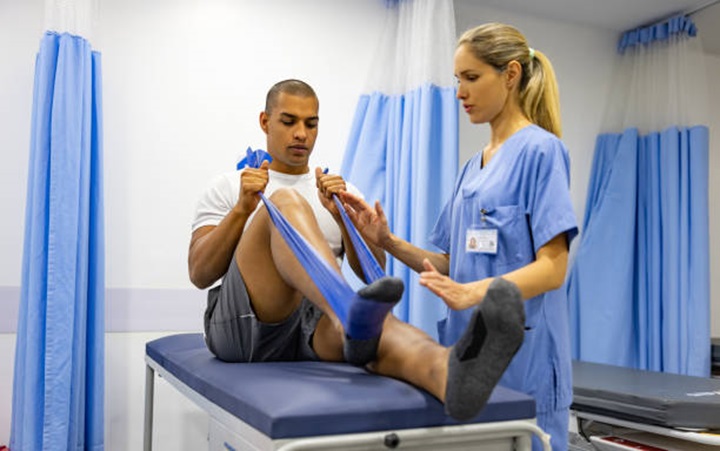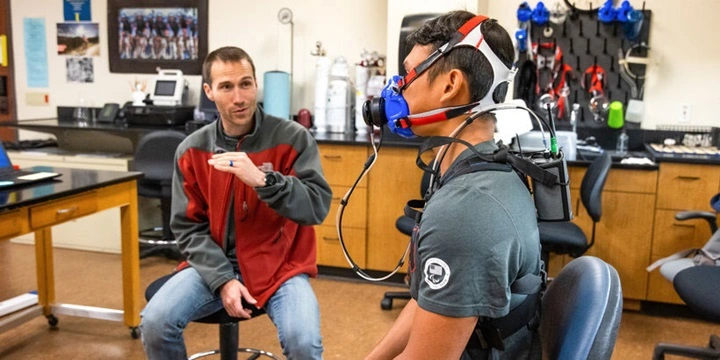Whether you’re a professional athlete, a weekend warrior, or just someone who enjoys staying active, injuries can happen. When they do, having access to quality sports medicine can make all the difference in your recovery and future performance. In this guide, we’ll explore everything you need to know about finding the best sports medicine near you, from understanding what sports medicine entails to tips for choosing the right provider.
What is Sports Medicine?
- Definition: Sports medicine is a branch of medicine that deals with physical fitness, treatment, and prevention of injuries related to sports and exercise.
- Scope: It encompasses a wide range of disciplines including orthopedics, physical therapy, exercise physiology, and nutrition.
- Objectives: The primary goal of sports medicine is to help individuals recover from injuries, prevent future injuries, and optimize performance.
Types of Sports Medicine Professionals:

- Orthopedic Surgeons: These doctors specialize in treating musculoskeletal injuries such as fractures, ligament tears, and joint issues.
- Sports Medicine Physicians: They are primary care physicians with additional training in sports medicine, focusing on non-surgical treatments for sports-related injuries.
- Physical Therapists: These professionals help patients rehabilitate after injuries through exercises, stretches, and manual therapy.
- Athletic Trainers: They work with athletes to prevent and treat injuries, often on the field or court during games and practices.
- Sports Nutritionists: These experts provide guidance on nutrition and hydration to optimize athletic performance and recovery.
How to Find Sports Medicine Near You:
- Research Online: Start by searching for sports medicine providers in your area using search engines, directories, and review websites.
- Ask for Recommendations: Seek recommendations from friends, family, coaches, or healthcare providers who may have experience with sports medicine professionals.
- Check Credentials: Ensure that the provider is properly licensed and board-certified in their respective field.
- Consider Specializations: Depending on your specific needs, look for providers who specialize in treating certain types of injuries or working with particular sports.
- Evaluate Experience: Look for providers with experience working with athletes at your level, whether you’re a professional, amateur, or recreational athlete.
Key Services Offered by Sports Medicine Providers:
- Injury Evaluation and Diagnosis: Comprehensive assessment of sports-related injuries to determine the extent and nature of the problem.
- Treatment Planning: Development of personalized treatment plans tailored to individual needs, which may include rehabilitation exercises, medications, or surgery.
- Rehabilitation: Guided rehabilitation programs to help patients regain strength, mobility, and function after injury or surgery.
- Injury Prevention: Education and training on injury prevention strategies, including proper warm-up techniques, equipment usage, and biomechanics.
- Performance Optimization: Techniques to enhance athletic performance through conditioning, training regimens, and biomechanical analysis.
Questions to Ask When Choosing a Sports Medicine Provider:
- What experience do you have treating my specific type of injury?
- What is your approach to injury prevention and rehabilitation?
- Do you work with athletes at my level (professional, amateur, recreational)?
- What types of diagnostic and treatment technologies do you use?
- How do you collaborate with other members of the healthcare team (e.g., physical therapists, coaches)?
Finding the best sports medicine near you is essential for maintaining peak performance and recovering from injuries. By understanding the types of services offered, how to find a qualified provider, and what questions to ask, you can ensure that you receive the care you need to stay healthy and active. Whether you’re a competitive athlete or someone who simply loves to stay active, investing in quality sports medicine is an investment in your long-term well-being.


